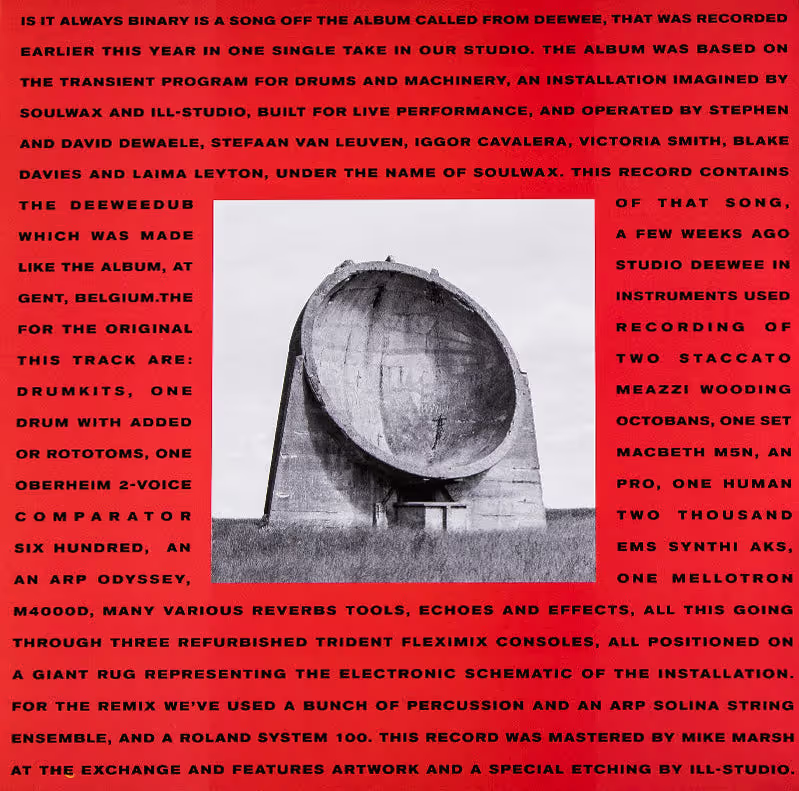
Permanent Rotation: System Olympia
Permanent Rotation is a series in which producers, DJs, and musicians go deep on the albums that have inspired them.
Since emerging with her debut solo EP in 2017, System Olympia has titillated thousands of fans around the globe with her steamy take on Italo disco, funk, and synth-pop. The London-based producer, DJ and label owner specialises in sexy noir-ish jams that get you in the mood for love and other indoor sports and maintains the allure with an elegant aesthetic that celebrates pleasure, decadence, and the wonders of a woman’s body.
The album that has impacted her most is very close to her heart, telling the story of where she’s from and why her native Italy is an ongoing source of inspiration, passion and comfort.
As I’m speaking with Francesca Macri one night via Zoom, there is a purple light in her London living room casting a sultry violet glow over the Italian producer and DJ. It feels wholly appropriate—as System Olympia, Macri has cultivated a sound and image that might be described as tasteful erotica, but her sensuality has always felt as though it was coming from an authentic place.

Macri is sweet and smiley in conversation, pensive but far less removed than her musical persona, and it becomes apparent that growing up in the southern Italian province of Reggio Calabria has had a deep impact on her style and sensibility. Hers is not the usual story of musical awakening through your parents’ record collection. Rather, she says there was barely any music in her household growing up, except for this one cassette of her mother’s: Il Meglio Di Lucio Battisti Vol. 2 [essentially the second instalment of a “Greatest Hits” album].
“That was my first encounter with music,” says Macri, who would have been six or seven years old, at the time. She recalls being crammed into a one-bedroom apartment in the hot Calabrian summer with her mother, father and sister, listening to Lucio Battisti on the cassette player. The first track is called “La Collina Dei Ciliegi”, which translates to “Cherry Tree Hill”. “My little kid mind always thought that was such a poetic name for a song,” Macri says.
Her main takeaway was that the album was very sad, and she could immediately identify with the sentiment. “It was like a mirror to me,” Macri says. “I was born sad. I was a sad child, and I had a really sad childhood. For the first time, it felt like somebody else was presenting that feeling that I was feeling into the world.”

It was a revelation to Macri, not only to know that she was not alone in her melancholy, but that it was something that could be expressed and shared. “I didn’t know it was ok that sadness could exist inside my head,” she says. Even more shocking was that the singer was a man, baring his soul for all the world to hear. Men didn’t do this kind of thing in southern Italy in the ‘80s. “As a child, I wasn’t allowed to express my feelings, and the way he expressed his vulnerability made me feel embarrassed for him,” Macri admits.
When Battisti died in 1998 aged 55, he had already put out 18 studio albums and was hailed as an era-defining Italian songwriter of the ‘60s and ‘70s. Both a shy figure who rarely performed live and a daring and inventive musician, Battisti experimented with styles including art pop, prog rock, psychedelia and R&B, sometimes all in the one song. Like most artists who don’t sing in English, French or Spanish, Battisti was massive in his home country and lesser known outside of it, but even David Bowie reportedly said that Battisti was his favourite singer, alongside Lou Reed, and that he would have loved to collaborate with him.
Back in London, where she’s lived since 2007, Macri still listens to Lucio Battisti most days and to a lot of Italian music in general, which she finds nostalgic and soothing. “I suffer from PMDD which is like next-level PMS so I have these moments that I need comfort in and I need to watch the movies that made me feel good and I need to listen to the same records over and over again,” she says. “I don’t have a physical comfort place. The world is scary to me and I have a lot of responsibility. My home is abstract, it’s in music.”

More so than stylistically, it’s the honesty and poetry of Battisti’s work that endears him so much to Macri. They are qualities she endeavours to embody in her own music, transmitted mainly through mood and suggestion. “I like people that are able to express themselves without imposing their feelings onto others and I feel like the best music does that,” she says. “I want my art to be powerful but also to leave room to the imagination, so the message is never too explicit.”
Macri’s work might not be explicit, but it’s racy—see the provocative covers of Delta of Venus and New Erotica Collection — and has a distinctly vintage Italian aesthetic. Another strong influence on Macri was stumbling across the erotic films of Italian director Tinto Brass as a child. “To be honest, I probably never recovered from those movies because I think I was too young to be watching that stuff and it probably gave me trauma,” she laughs. “It set the tone for a certain excitement about things that are not supposed to be done and not supposed to be said. I really like to live in that space, visually and just in general.”
On her long-running residency on NTS, Macri can indulge her penchant for old Italian songs, but she’d love to play more of this kind of music beyond her radio show. “I listen to slow music all day and I wish I could do the type of nights where I play those songs and all the soul music that I like,” she says. Sophisticated venues of the world, take note! We’d love to hear Macri play her favourite home-listening selections in a nice wine bar too.
System Olympia’s new single is “Sanctified“, featuring Working Men’s Club. The Sanctified EP is out on May 16th on Macri’s Okay Nature record label.









